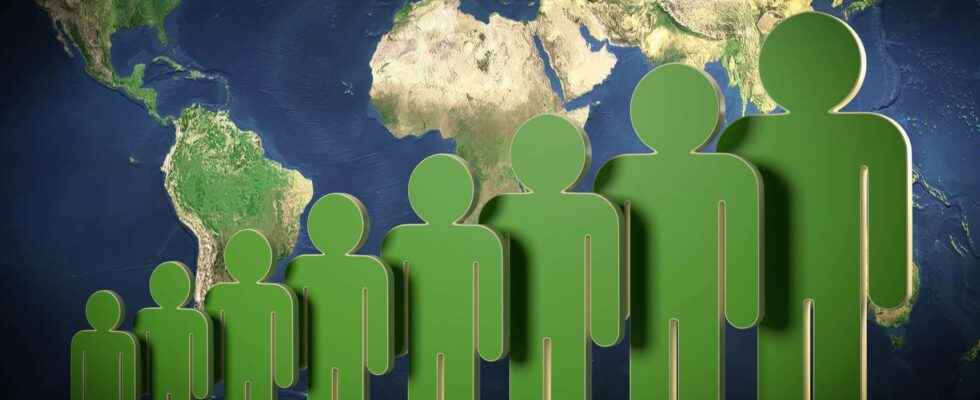We would be over 7.6 billion human beings on Earth and two billion more in 2050. What is the impact of overpopulation on the environment and the world’s resources?
You will also be interested
[EN VIDÉO] In 2050, our habitats will be transformed Humanity is expected to have 2.2 billion additional people in 2050, as many people as will need to be housed. This demographic pressure causes a constant increase in the artificialization of soils, a disaster for ecosystems which find themselves fragmented and destroyed. However, there are not one, but two solutions to this problem!
Today, we are more than 7.6 billion human beings on Earth (last revision of the United Nations, in its report of June 2017). According to the latest projections, we will be 9.5 billion by 2050. We can explain these forecasts by the demographic explosion of the countries. emerging and the lengthening of the lifetime in developed countries.
Global overpopulation and water supplies
L’water is the most precious resource on Earth: a global overpopulation could lead to generalized conflicts related toblue gold. Clashes already exist, since water is one of the main causes of tensions in the Middle East. One world water conflict would therefore have disastrous consequences. Currently, 80 countries lack water and one in five people does not have access to safe drinking water. To overcome this shortage, solutions do exist, however, such as water desalination of sea, which is still expensive.
Global overpopulation and food
Currently, the most developed countries have enough resources to feed all the inhabitants of the planet. However, not all people on the planet have enough to eat, foodstuffs being unevenly distributed. One of the consequences of global overpopulation would be to worsen these inequalities, causing famines.
Global overpopulation and pollution
Pollution of the planet is not directly linked to global overpopulation. The most developed countries are those who pollute the most, but also those with the lowest birth rates. An American pollutes 91 times more than an inhabitant of Bangladesh. However, if the growth of emerging countries continues to climb and if developed countries do not restrict the pollution they generate, then global overpopulation will have a disastrous consequence on the environment of our planet.
Interested in what you just read?
.
fs12
